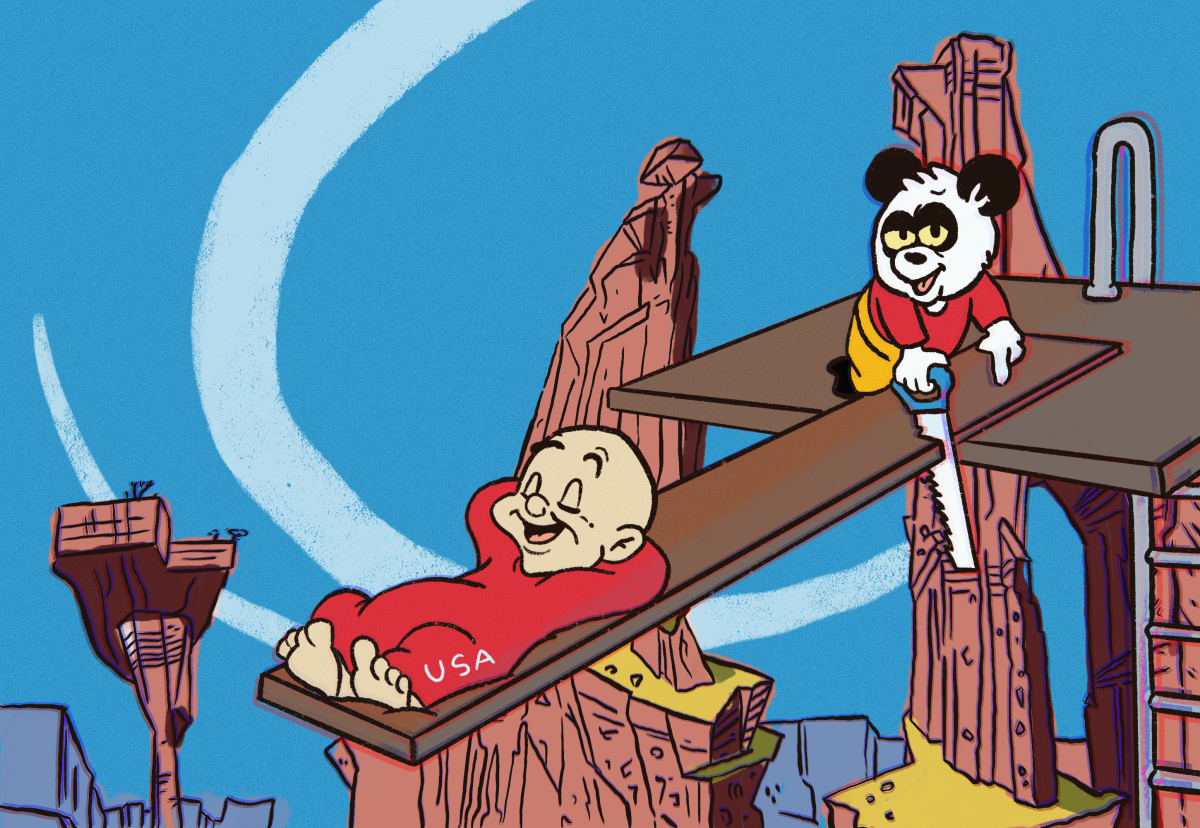As the world continues to socially evolutionize, the U.S. and its international counterparts should distance themselves from China as it indulges in human rights violations.
China has been a significant competitor in the international economic forum because of its manufacturing abilities and exporting ventures.
But the U.S. should completely divorce from China given its severe ethical concerns.
In early 2017, drone footage was anonymously released on YouTube revealing Chinese modern day concentration camps.
This evidence verified a long-assumed theory about the operation of internment camps targeting Uyghur Muslims, a Turkic ethnic group from the Xinjiang Uyghur Autonomous Region in Northwest China.
The Chinese Communist Party (CPP) has redirected the narrative and labeled the camps as “reeducation” programs dedicated to eradicating supposed extremist Muslim minority views, according to an Aug. 18, 2018 BBC article.
But China’s definition of “re-education” also entails the wretched abuse of more than one million people in forms of “torture, forced political indoctrination and mass surveillance,” according to a Feb. 20, 2020 Human Rights Watch (HRW) article.
This isn’t the time China’s suppressed groups who’ve “undermined” the CPP.
Hong Kong protesters were gunned down between 2018-19, following a possible extradition bill. The bill would’ve “allowed for criminal suspects to be extradited to mainland China,” according to a Nov. 28, 2019 BBC article.
Hong Kong had been granted a “one country, two systems” political structure following British rule to ensure democracy.
China’s idea of collaboration with Hong Kong entails a sham democracy evident during Hong Kong’s 2014 election, where citizens elected a leader from a CPP pre-approved list of pro-Beijing politicians.
Now the CPP has intervened in Hong Kong’s election and postponed it for another year because of the coronavirus, according to an Aug. 7, 2020, Time article.
Despite this unjustified postponement and China’s routine abuse, the 2022 Winter Olympics is set to remain in Beijing.
In March 2020, the International Olympic Committee released recommendations to ensure human rights during this year’s Winter Olympics, but “recommendations” aren’t actions.
Abuse was reported to the HRW during the 2008 Beijing Summer Olympics for “forceful evictions, silencing of activists and relocation of homeless people in order to expand the area for the event.”
With this history and current events within China, it’s immoral to continue a partnership with the country, regardless of its economic strength.
It’s simply not enough to recognize abuse. People must voice the concerns of the underrepresented.
When people including Mark Cuban, owner of the NBA’s Dallas Mavericks, say they acknowledge concerns but “have to pick [their] battles,” within business ventures, as Cuban explained to journalist Megyn Kelly, they’re proclaiming that ethics falls behind economics.
This belief has become a global sentiment and politicians including former President Trump have indulged the idea.
In a June 2020 Axios interview, Trump reasoned his late treasury sanction impositions in accordance with conducting a “major trade deal.”
And though the administration ended its term with a statement deeming the Uyghur Muslim crimes a “genocide,” the economic priortization over human rights is a dangerous rhetoric.
When domestic businesses implement corporate relationships with foreign countries, they’re aiding and abetting a human rights crisis.
For example, Apple’s manufacturing is primarily conducted in China in partnership with Taiwan’s Foxconn, the largest electronic manufacturer in the world, according to Fortune Magazine.
A June 18, 2017 Guardian article showed problems as Foxconn promised employee housing, yet they were forced to pay extremely high utility bills.
Workers also slept in overcrowded sleeping quarters and lacked proper social insurance, a public insurance program that provides protection against various economic risks, according to Britannica.
The article said unhinged working environments have led to several physical and mental health concerns, including an unnerving suicide rate.
If this was any other country, developed nations would implement stronger sanctions. But when economic factors intersect with ethical concerns, moral righteousness hasn’t been adhered.
It’s encouraging to see a new presidency continuing the former administration’s stance on China yet with a more democratic and human rights lens.
Hopefully the U.S. will encourage other nations to dissolve their volatile relationships to ensure the protection of vulnerable communities.









































